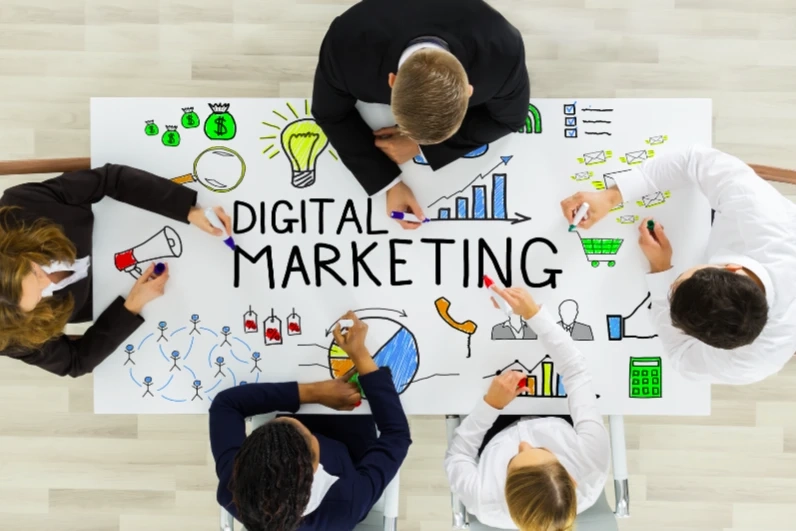In the fast-paced world of business, adapting to the digital age is no longer an option but a necessity. As traditional marketing channels evolve and consumer behavior shifts online, the importance of digital marketing has never been more pronounced. From small startups to multinational corporations, embracing digital strategies is essential for reaching and engaging with audiences in today's interconnected world.
Understanding Digital Marketing
Digital marketing encompasses a broad range of tactics and techniques aimed at promoting products, services, or brands through digital channels. Unlike traditional marketing, which relies on print ads, television commercials, or direct mail, digital marketing leverages the power of the Internet to connect businesses with their target audiences in real time.
Key Components of Digital Marketing
Search Engine Optimization (SEO): SEO is the process of optimizing a website to rank higher in search engine results pages (SERPs). By improving visibility and organic traffic, businesses can attract more qualified leads and increase their online presence.
Content Marketing: Content marketing involves creating and distributing valuable, relevant content to attract and engage a target audience. From blog posts and articles to videos and infographics, compelling content helps businesses establish authority, build trust, and drive conversions.
Social Media Marketing: Social media platforms have become integral to digital marketing strategies, offering unparalleled opportunities for brands to connect with consumers on a personal level. By engaging in conversations, sharing content, and running targeted ads, businesses can expand their reach and foster brand loyalty.
Email Marketing: Despite the rise of social media and other digital channels, email marketing remains one of the most effective ways to nurture leads and drive conversions. Personalized emails, automated workflows, and segmentation strategies help businesses deliver relevant messages to their subscribers, ultimately boosting engagement and sales.
Pay-Per-Click (PPC) Advertising: PPC advertising allows businesses to display ads on search engines and other digital platforms, paying only when users click on their ads. With precise targeting options and measurable results, PPC campaigns offer a cost-effective way to drive traffic, generate leads, and increase sales.
The Benefits Of Digital Marketing
Increased Reach: Digital marketing enables businesses to reach a global audience, breaking down geographical barriers and expanding market reach.
Better Targeting: Through data-driven insights and advanced targeting options, digital marketers can tailor their campaigns to specific demographics, interests, and behaviors, ensuring maximum relevance and effectiveness.
Measurable Results: Unlike traditional marketing methods, digital marketing allows for real-time tracking and analysis of campaign performance. From website traffic and conversion rates to social media engagement and email open rates, businesses can monitor key metrics and adjust their strategies accordingly.
Cost-Effectiveness: Digital marketing often offers a higher return on investment (ROI) compared to traditional marketing channels. With flexible budgeting options and the ability to optimize campaigns in real time, businesses can achieve their goals more efficiently and cost-effectively.
Challenges And Opportunities
While digital marketing presents numerous opportunities for businesses to thrive in the digital age, it also comes with its fair share of challenges. From fierce competition and algorithm changes to data privacy concerns and ad fatigue, staying ahead of the curve requires continuous learning and adaptation.
However, by embracing innovation, harnessing the power of technology, and prioritizing customer-centric strategies, businesses can overcome these challenges and unlock the full potential of digital marketing. From personalized experiences and omnichannel integration to voice search optimization and artificial intelligence, the future of digital marketing is brimming with possibilities.
In conclusion, digital marketing has revolutionized the way businesses connect with consumers, enabling them to reach, engage, and convert audiences like never before. By embracing digital strategies, businesses can stay relevant, competitive, and successful in today's rapidly evolving marketplace.


